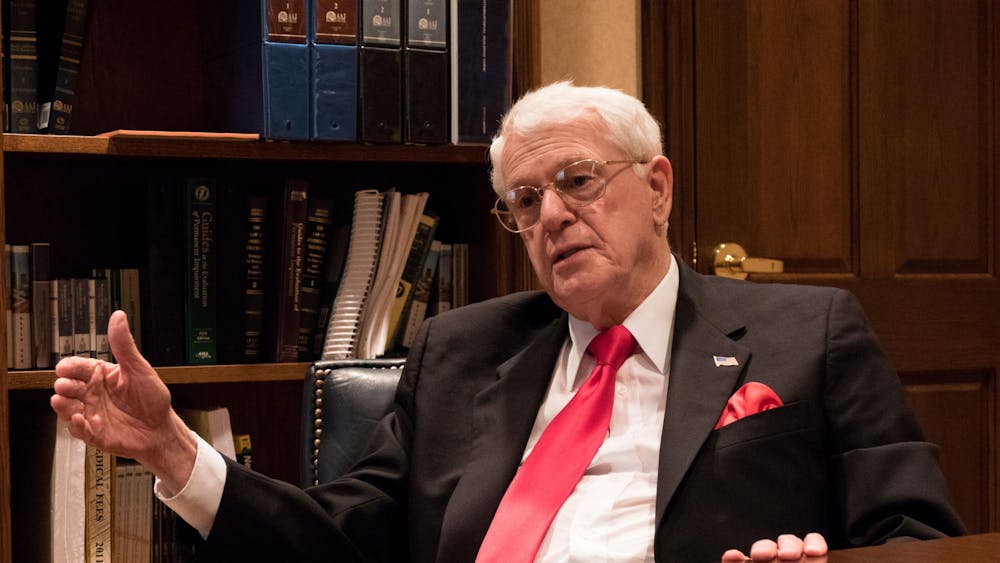Babak Seradjeh decided he had to cancel his research trip when he arrived at Newark Liberty International airport in New Jersey. As he was about to depart, he questioned himself and the people around him to see if the trip was worth the risk of not being able to return.
The IU associate professor of physics was planning to go abroad to meet with collaborators for a United States-funded research grant, but because he’s a dual citizen of Iran and Canada, he’s afraid he won’t be allowed back in if he leaves the country.
President Trump issued an executive order Friday that bans entry of people from seven Muslim-majority countries for at least the following 90 days. These countries, which are Iran, Iraq, Syria, Libya, Yemen, Somalia and Sudan, were selected based on a perceived threat of terrorism in order to protect American citizens.
In addition the admission of refugees from all countries has been suspended for four months. Those displaced from Syria are barred entry indefinitely.
Seradjeh is a green card holder and permanent resident of the U.S. He said this ban affects him, his family, friends and some of the people he works with.
“I thought everything would be okay,” Seradjeh said. “I went to Newark and asked the agents in the airport if I was able to make it back in. As I kept following the news I wasn’t so sure.”
Seradjeh’s project was a collaboration between IU and researchers in Israel and was partially funded by the US-Israel Binational Science Foundation.
The effects of the ban on Seradjeh extends to his personal life — although he hasn’t visited Iran in many years, his mother was planning to visit the U.S. for his upcoming wedding. Now that the ban is instated she won’t be able to attend.
“If this becomes the way thing are done, people like me will be disfavored in receiving grants because of travel restrictions,” Seradjeh said. “This is going to get in the way of how I do my work and live my life.”
Although Seradjeh’s work is directly affected by the executive order, he said he is also concerned for the international students at IU who will be unable to receive approval to study in the U.S. in the future or whose statuses may no longer be honored even if they were legally admitted in the past.
“The civic society opinions I’ve read say the way it’s worded is unconstitutional, but they can still reword it and keep the original intent of banning specific kinds of people,” Seradjeh said. “It’s even worse for people who are displaced, because at least I had the privilege to be here and work here already.”
Senior and political science student Niloofar Asgari said she feels a sense of dread thinking about the future. Her parents are naturalized U.S. citizens and immigrants from Iran.
“This has caused so much destruction and divided people so much more,” Asgari said. “Even for people who are not directly affected and have friends and neighbors who will be. This isn’t us — we’re better than this.”
Despite the immediate effects of these restrictions, Seradjeh said he was moved by the intense response from both the Bloomington community and from other cities across the country.
“I’ve been overwhelmed by how far my posts online have gone,” Seradjeh said. “The support has been positive and reassuring.”





